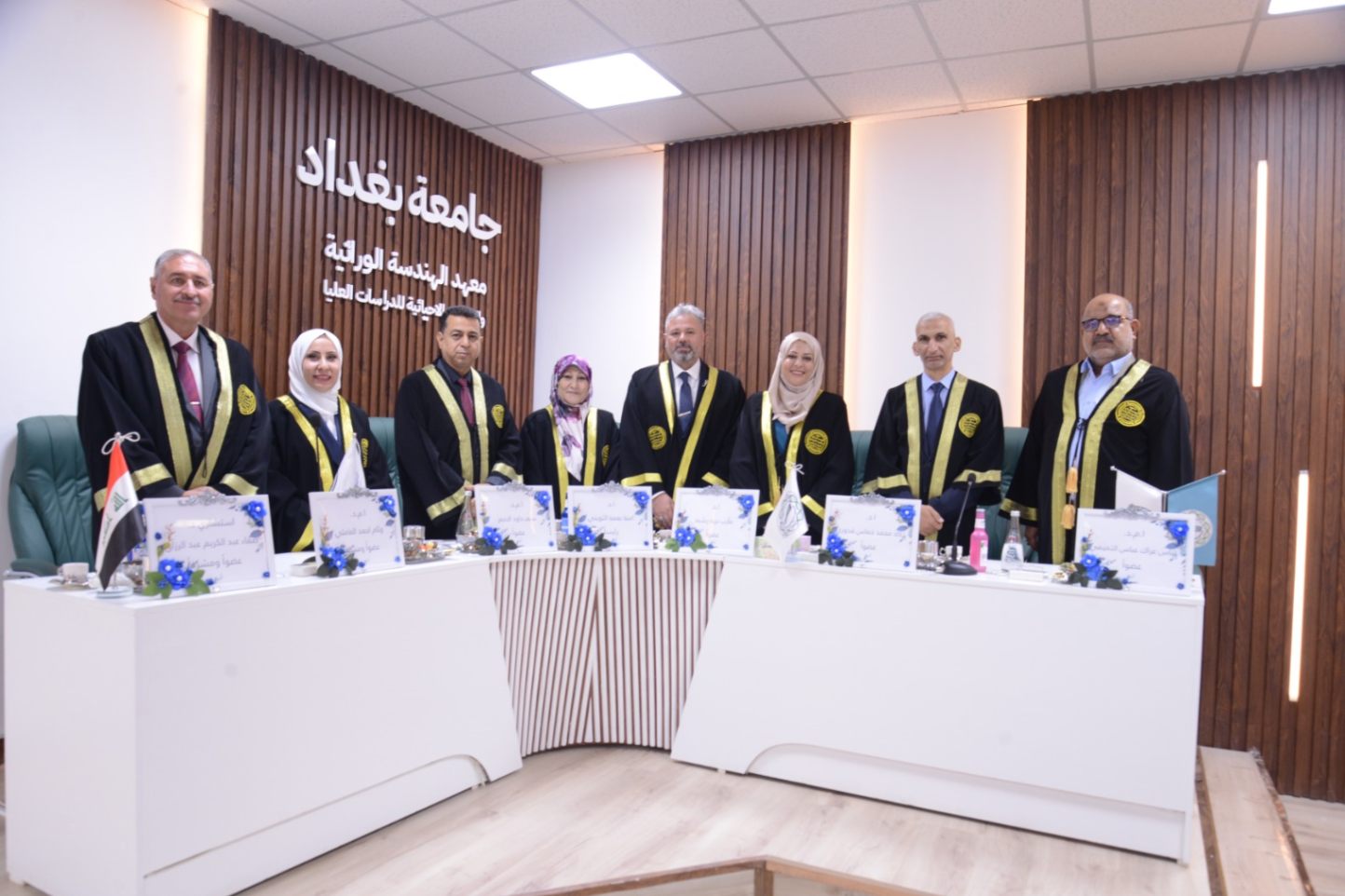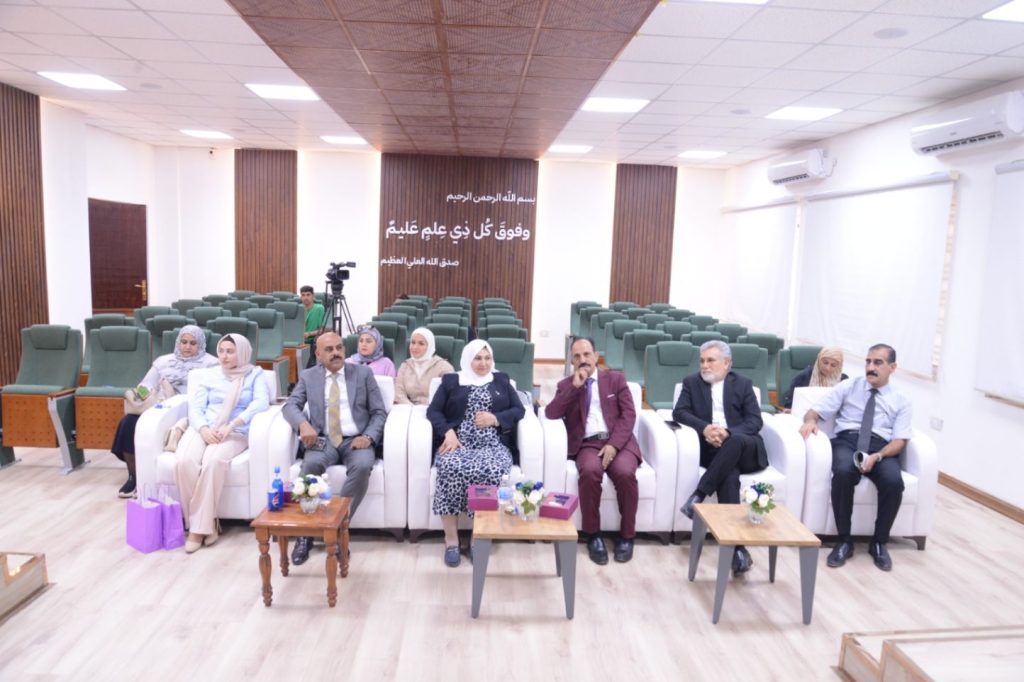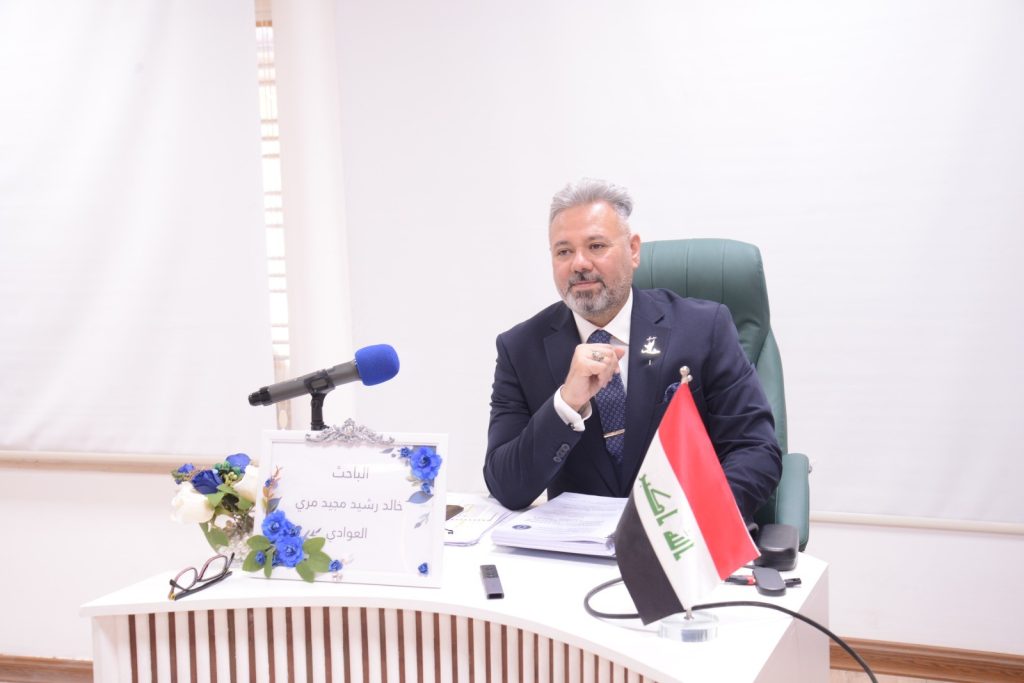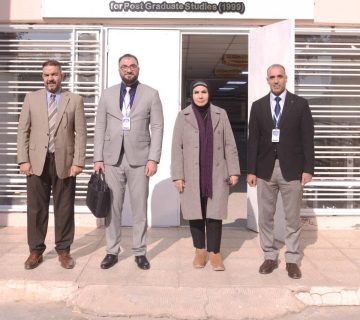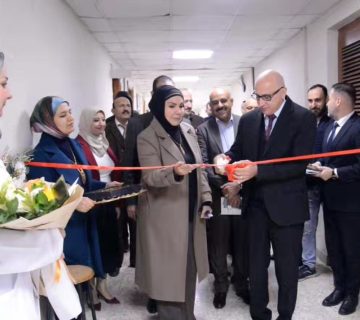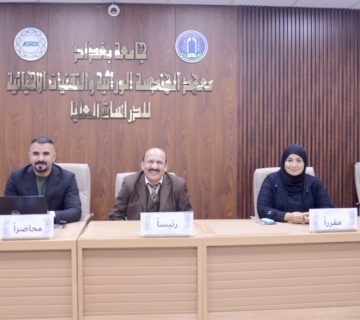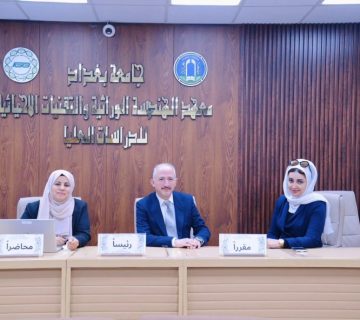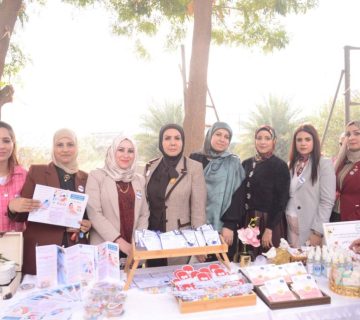The Institute of Genetic Engineering and Biotechnology for Postgraduate Studies at the University of Baghdad discussed the PhD dissertation of Khalid Rasheed Majid, entitled:
“The Association between Genetic Polymorphisms and Gene Expression of EGFR and EpCAM, and the Gene Expression of miRNA-122 with Liver Cancer in Iraqi Patients with Hepatitis B Virus Infection”, supervised by Asst. Prof. Dr. Weam Ahmed Al-Ameli.
The study aimed to determine the role of the epidermal growth factor receptor (EGFR) gene and the epithelial cell adhesion molecule (EpCAM) gene, in addition to the roles of miR-122 and miR-let7a-1, in the development of hepatocellular carcinoma (HCC) caused by chronic hepatitis B virus (CHB) infection in a sample of Iraqi patients.
The results showed that the expression of the EGFR gene was elevated in both HCC and CHB patients (2.04-fold and 2.47-fold, respectively), as well as the EpCAM gene (1.4-fold and 1.8-fold, respectively), compared to healthy controls (1.00). In contrast, the expression of miR-122 and miR-let7a-1 was downregulated in HCC (0.26 and 0.19-fold, respectively) and in CHB (0.81 and 0.21-fold, respectively), compared to healthy controls (1.00).
The study concluded, based on ROC analysis, that miR-let7a-1 in HCC and CHB patients, and miR-122 in HCC patients, demonstrated the highest diagnostic performance, making them promising candidates as specific biomarkers for HCC and CHB.

